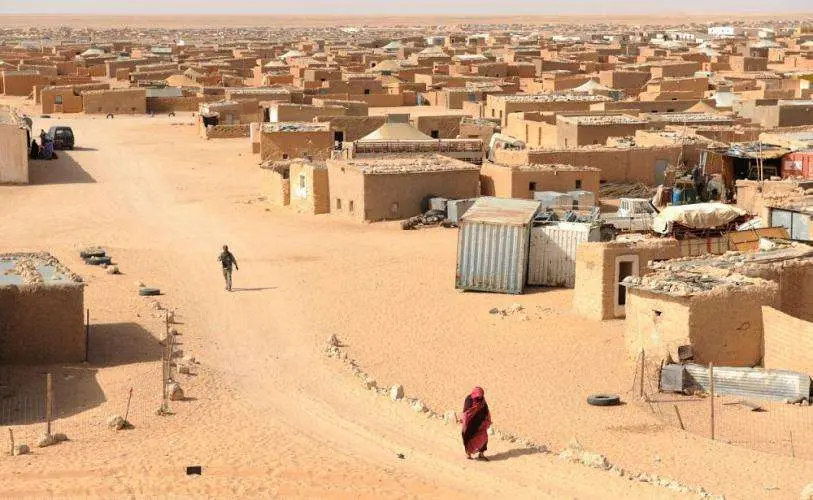Uncertainty in the Polisario due to the challenge of the dissidents

Since the recent creation of the Saharan Peace Movement, there has been little reaction from the Polisario Front. Only a few publications in related media, such as the one related to the anniversary of this 20 May 1973, where once again they celebrate the first armed action with the attack on a border post in the Sahara during the Spanish administration, specifically in the post of Janquet Quesat (El Khanga). This attack was carried out on a barracks occupied only by Saharawi policemen with very little garrison, and was executed to seize the vehicles, arms and ammunition of the peaceful territorial police protecting it. Anchored in the past, they extol old exploits while turning their backs on a present and future that is becoming increasingly bleak for their interests.
The memory of this first act of war, widely hailed in the camps, was intended to serve to raise the morale of a population that had felt the impact of the founding of a dissident movement, and had dared to denounce the immobilist and self-interested activity of leaders who claimed to be the only representatives of the Saharawi people, whose only "success" was that they had not managed to advance their liberation process in exile for 47 years.
In the three weeks that the Movement has been in existence, the number of members has already tripled. The most striking thing is that the majority are young people, students or university graduates. For the 150 dissidents who make up the Saharawi Peace Movement, its aim is to defend a peaceful solution to the regional dispute over the Sahara. This position has been underlined by the leader of the newly created movement, Hach Ahmed Bericalla, a prominent politician in various leadership positions in the Polisario Front, and who until the first congress of his organization holds the position of first secretary.
One of the first measures taken by this Saharawi Movement for Peace (MSP), was to send a letter to the UN Secretary General, António Guterres. In it Bericalla affirmed that "it is absolutely necessary and urgent to break the deadlock and to relaunch efforts to reach such a settlement". The new first secretary of the MSP also affirmed recently that the MSP is a new and independent political force "representing a wide spectrum of Saharawis".
The measure deals a heavy blow to the Polisario Front, confirming that it will no longer be the sole representative of the Saharawis, as it has always claimed with the support of Algeria. The members of the Movement want to play a central role in the search for a peaceful solution to the regional conflict in the Sahara, which has been dormant for nearly five decades.
The MSP was born out of frustration, anger and discontent of the Saharawis due to numerous episodes of corruption and loss of freedoms in the camps that had been denounced for years, and where their reckless leaders were not able to reach a lasting solution to the problem of the Sahara and end their suffering, while Brahim Ghali and his lieutenants continued to enjoy their comfortable life serving their personal interests, disregarding the plight of the Saharawis.
On the other hand, according to a publication on 6 May last in the media, La Provincia/Diario de Las Palmas, under the headline 'Polisario: Recent Chronology of a Decomposition', Ignacio Ortiz, vice-president of the Saharawi Canary Islands Forum, stated that "it is not the first time that new initiatives are being talked about which then end in deadlock. Initiatives which, in most cases, fall into oblivion under the so often facile accusations of betrayal and sale to foreign interests, as if there were no more than enough reasons to want to change the harsh and immovable situation in the camps of Tindouf".
In this case there are all the favourable circumstances for the MSP to achieve this objective, with this new postulate and approach whose keys are in a more moderate, sensible and coexistence nationalism. The keys to the settlement lie in this type of proposal.
